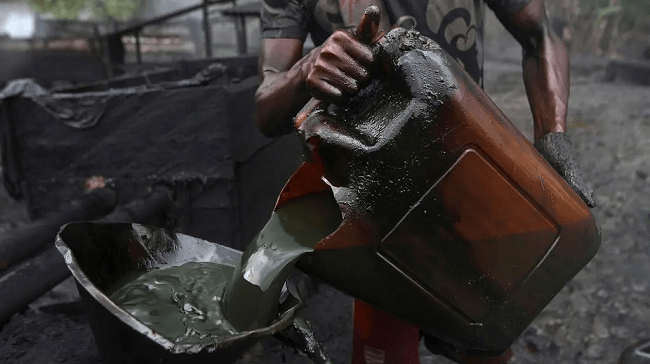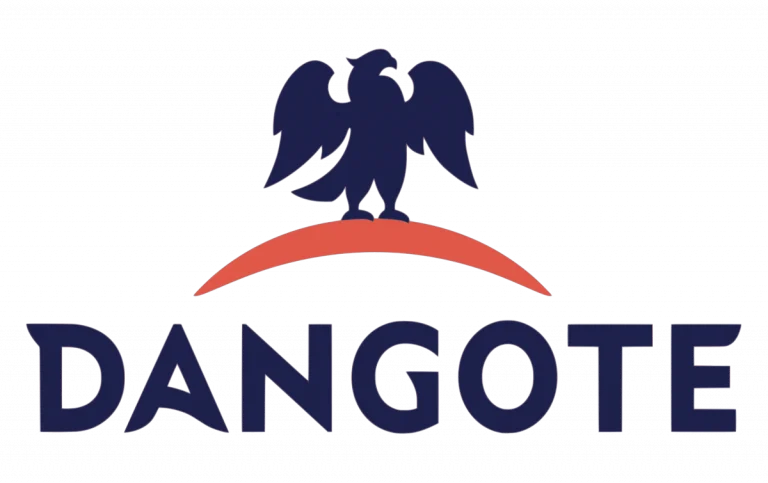Business
FG Cracks Down On Producers Over Domestic Crude Oil Supply To Refineries

In a bid to ensure that local refineries have enough feedstock for domestic refining, the Federal Government Wednesday threatened to sanction oil companies which fail to meet their domestic crude oil supply obligations in line with the provisions of the Petroleum Industry Act, PIA.
The government said companies which violate the law could be fined as much as $10,000 and have their export licences withdrawn.
Speaking at a meeting with crude oil producers in Abuja, the Chief Executive, Nigerian Upstream Petroleum Regulatory Commission, NUPRC, Engr. Gbenga Komolafe said it was important that the industry supply enough crude oil to local refineries on a willing buyer, willing seller basis.
Mr Komolafe noted that as the largest oil producer in Africa and 7th in OPEC, Nigeria could no longer afford to be a net importer of petroleum products.
READ ALSO: FULL LIST: Osimhen, Salah, Others Get 2023 African Player Of The Year Nomination
He therefore urged the oil producers to make available the volume needed for local refining, stressing that supply to the domestic market would henceforth be given priority over export.
He pointed out that the industry’s inability to meet its domestic refining obligations has impacted negatively on the economy given the volume taken as under-recovery during the petrol subsidy regime.
He explained that “domestic crude oil supply obligation refers to the requirements imposed by the government on oil producers to allocate a certain portion of their crude oil production for domestic consumption. This is done to ensure a stable and reliable supply of crude oil for the country’s domestic needs, including refining to petroleum products.
“Section 109 of the Petroleum Industry Act introduces the domestic crude oil supply obligation to the oil industry in Nigeria in a bid to ensure crude supply to local refineries. Under section 109 subsection two of the PIA, the commission gazetted the production containment and domestic crude oil supply regulations which provides clarity of the obligations of the stakeholders”.
READ ALSO: Oil Prices Jump As Hamas-Israel Attacks Fuel Supply Fears
The CCE noted that where there are supply gaps, the Commission has the responsibility to step in by issuing a “request for quotation to oil producers requiring them to submit a quotation for the supply of crude oil to meet the shortage. Upon receiving responses from the oil producers, the Commission makes available the information to the affected refineries to facilitate contract negotiations between these stakeholders. If no resolution is reached, the commission shall impose an obligation on oil producers to supply the and notify the Authority of same.
“The volume of crude oil that oil producing companies shall dedicate to the domestic crude supply obligation shall be based on an allocation system determined by the Commission”.
He stated that the Commission would take all necessary steps that would be needed to avoid an inadequate supply of crude oil to domestic refineries.
READ ALSO: Navy Goes After Sponsors Of Oil Bunkering In Rivers
He disclosed that the Commission shall “enforce the following penalties for violations or non-compliance to the provisions of Section 109 of the Act. A company which fails to respond to requests for quotations within a specified period is liable to pay an administrative fine of $10,000 to the Commission, that is for the period of default.
“A company which has not complied with its domestic crude supply obligation, where a willing buyer insists, shall not be granted an export permit for the lease there. A company that fails to comply with the domestic supply obligation shall incur a penalty of 50 per cent of the fiscal price for barrels not delivered.
He said the Commission has received a request from Dangote Refinery to guarantee the supply of 650,000 barrels of crude oil per day ahead of its expected coming onstream in December.
VANGUARD
Business
NNPCL Announces Restoration Of Escravos-Lagos Pipeline

The Nigerian National Petroleum Company Limited (NNPCL) has announced the complete restoration of the Escravos-Lagos Pipeline System (ELPS) in Warri, Delta State, following the recent explosion on the asset.
The chief corporate communications officer (CCCO) of the nation’s oil company, Andy Odeh, in a statement, said that the pipeline is fully operational, reiterating the company’s resilience and commitment to energy security.
“NNPC Limited is pleased to announce the successful restoration of the Escravos-Lagos Pipeline System (ELPS) in Warri, Delta State.
READ ALSO:Fuel Price Cut: NNPCL GCEO Ojulari Reveals Biggest Beneficiaries
“Following the unexpected explosion on December 10, 2025, we immediately activated our emergency response, deployed coordinated containment measures, and worked tirelessly with multidisciplinary teams to ensure the damaged section was repaired, pressure-tested, and safely recommissioned.
“Today, the pipeline is fully operational, reaffirming our resilience and commitment to energy security. This achievement was made possible through the unwavering support of our host communities, the guidance of regulators, the vigilance of security agencies, and the dedication of our partners and staff.
“Together, we turned a challenging moment into a success story, restoring operations in record time while upholding the highest standards of safety and environmental stewardship.
“As we move forward, NNPC Limited remains steadfast in its pledge to protect our environment, safeguard our communities, and maintain the integrity and reliability of our assets. Thank you for your trust as we continue to power progress for Nigeria and beyond,” the statement read.
Business
Dangote Unveils 10-day Credit Facility For Petrol Station Owners

The Dangote Group has announced a 10-day credit facility backed by a bank guarantee for petrol station owners and dealers, alongside free direct delivery and other incentives, as part of a new supply arrangement.
The company disclosed this in a statement posted on its official X handle on Tuesday, inviting petrol station operators across the country to register to benefit from the offer.
According to the statement, participating dealers will enjoy “a 10-day credit facility backed by a bank guarantee,” with a minimum order requirement of 5,000 litres.
“Our free direct delivery service will commence soon,” the group said, adding that the offer is open to “all petrol station owners and dealers.”
READ ALSO:Dangote Sugar Announces South New CEO
The Dangote Group further called on operators to register their stations to access the supply arrangement.
“Register your petrol stations today to benefit from our competitive gantry price,” the statement read.
The company also disclosed that petrol supplied under the arrangement will be sold at a gantry price of ₦699 per litre.
For enquiries, the group provided the following contact numbers: 0802-347-0470, 0809-324-7070, 0809-324-7071 and 0203.
READ ALSO:Dangote Refinery Dispute: PENGASSAN Suspends Strike After FG Intervention
The announcement follows a recent petrol price adjustment by the Dangote Petroleum Refinery.
The PUNCH earlier reported that the refinery reduced its ex-depot petrol price from ₦828 to ₦699 per litre, representing a ₦129 cut or a 15.58 per cent reduction.
An official of the refinery, who spoke to PUNCH Online on condition of anonymity, confirmed the adjustment, saying, “The refinery has reduced petrol gantry price to ₦699 per litre.”
The new price reportedly took effect on December 11, 2025, marking the 20th petrol price adjustment announced by the refinery this year.
Business
JUST IN: Otedola Sells Shares In Geregu Power For N1trn

Billionaire businessman, Femi Otedola, has sold his majority stake in Geregu Power Plc for N1.088 trillion in a deal financed by a consortium of banks led by Zenith Bank Plc.
The Nigerian Exchange, NGX, made this announcement on Monday.
Otedola’s Amperion Power Distribution Company Ltd reportedly held nearly 80 percent of the power generating company.
READ ALSO:N200b Agric Credit Dispute: Appeal Court Slams NAIC, Upholds First Bank Victory
With this new development, Otedola, Chairman of First Holdco Ltd, parent company of First Bank of Nigeria Plc, will reportedly now concentrate on expanding his interest in the Nigerian banking sector, although he still retains some shares in Geregu.
Otedola is said to currently own 17.01 percent of First Bank — its single largest shareholder since the bank was established in 1894.

 News3 days ago
News3 days agoBREAKING: Anthony Joshua Involved In Road Accident

 News4 days ago
News4 days agoEx-Edo Gov Obaseki Reacts As His Cousin Is Beaten, Stripped

 Politics3 days ago
Politics3 days agoYou’re Not 001 – Wike Rubbishes Claims Of Fubara Being APC Leader In Rivers

 Politics3 days ago
Politics3 days agoWike Speaks On Defecting To APC

 Metro4 days ago
Metro4 days agoObaseki Beaten, Stripped In Edo

 Politics2 days ago
Politics2 days agoJUST IN: INEC Excludes PDP From Ekiti Governorship Election

 Politics3 days ago
Politics3 days agoGo To Hell, You Didn’t Pay My School Fees – Wike Hits Seyi Makinde

 News3 days ago
News3 days agoNAF Neutralizes Bandits At Turba Hill, Kachalla Dogo Sule Camps

 News3 days ago
News3 days agoDoris Ogala: How Pastor Chris Knelt Before Church, Begged For Forgiveness [Video]

 Business5 days ago
Business5 days agoNaira Records Massive Appreciation Against US Dollar Into Christmas Holidays
































